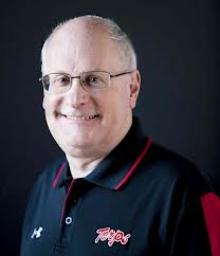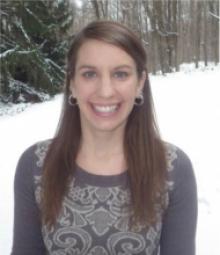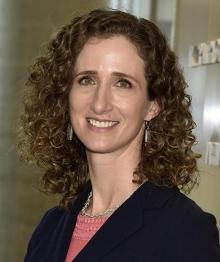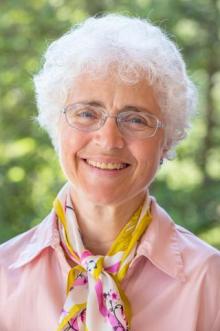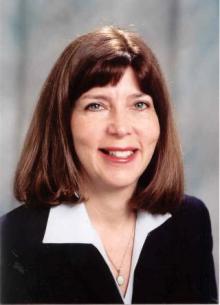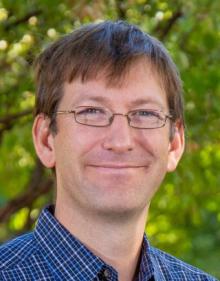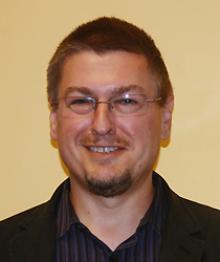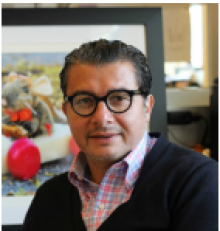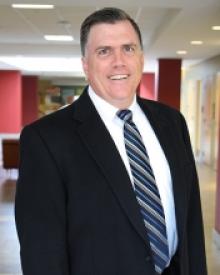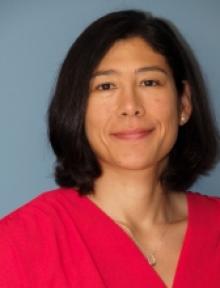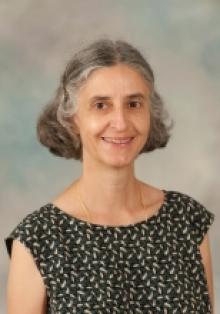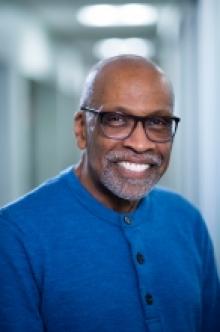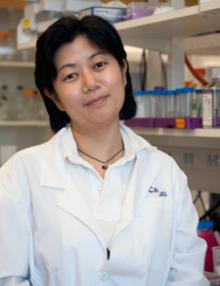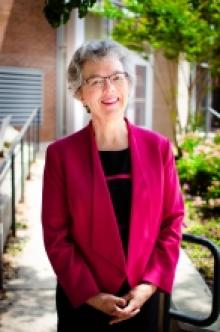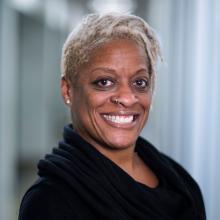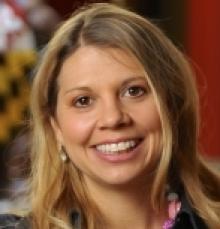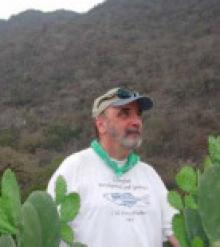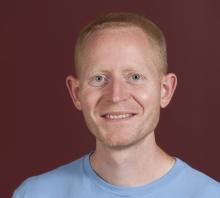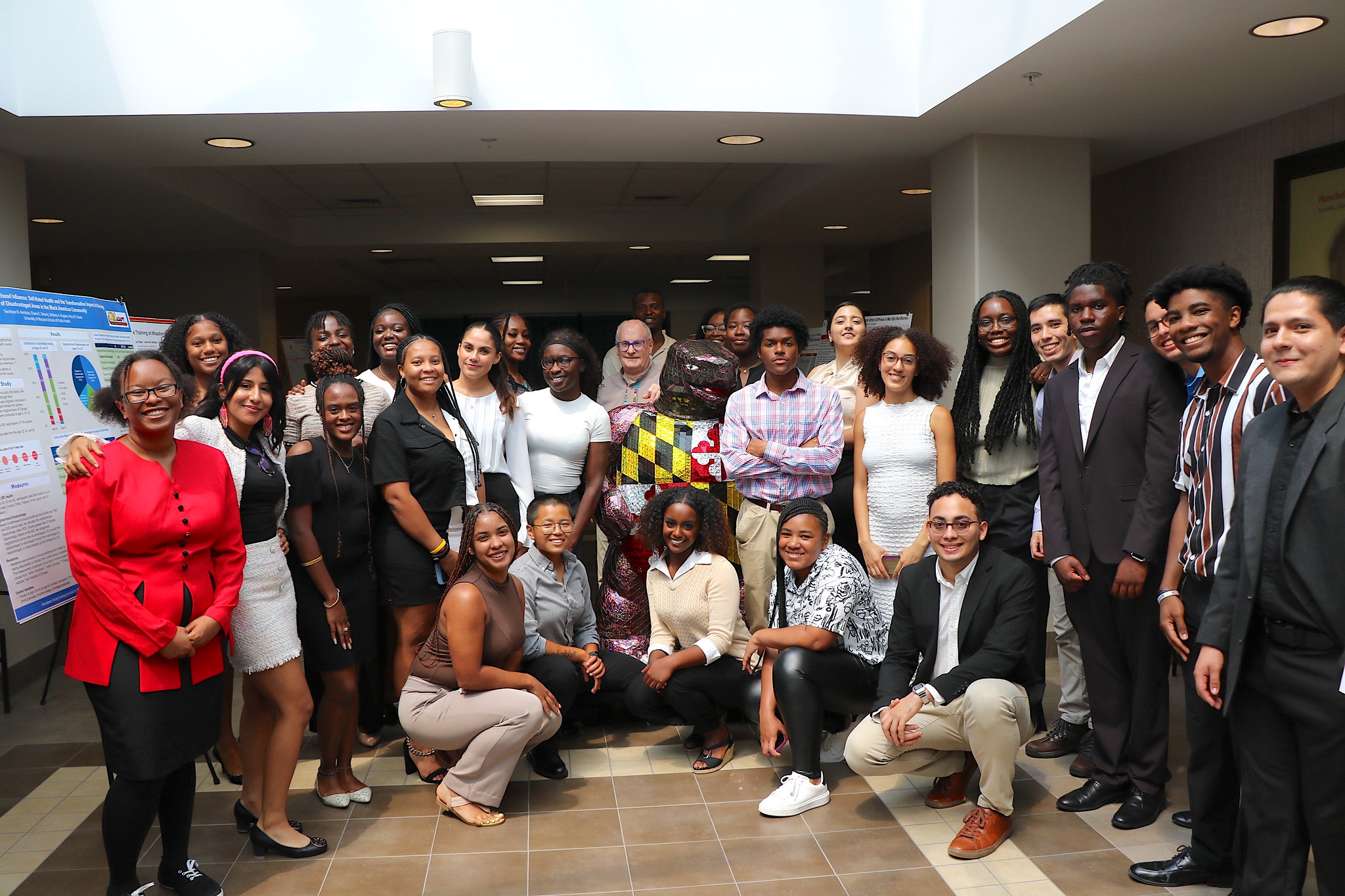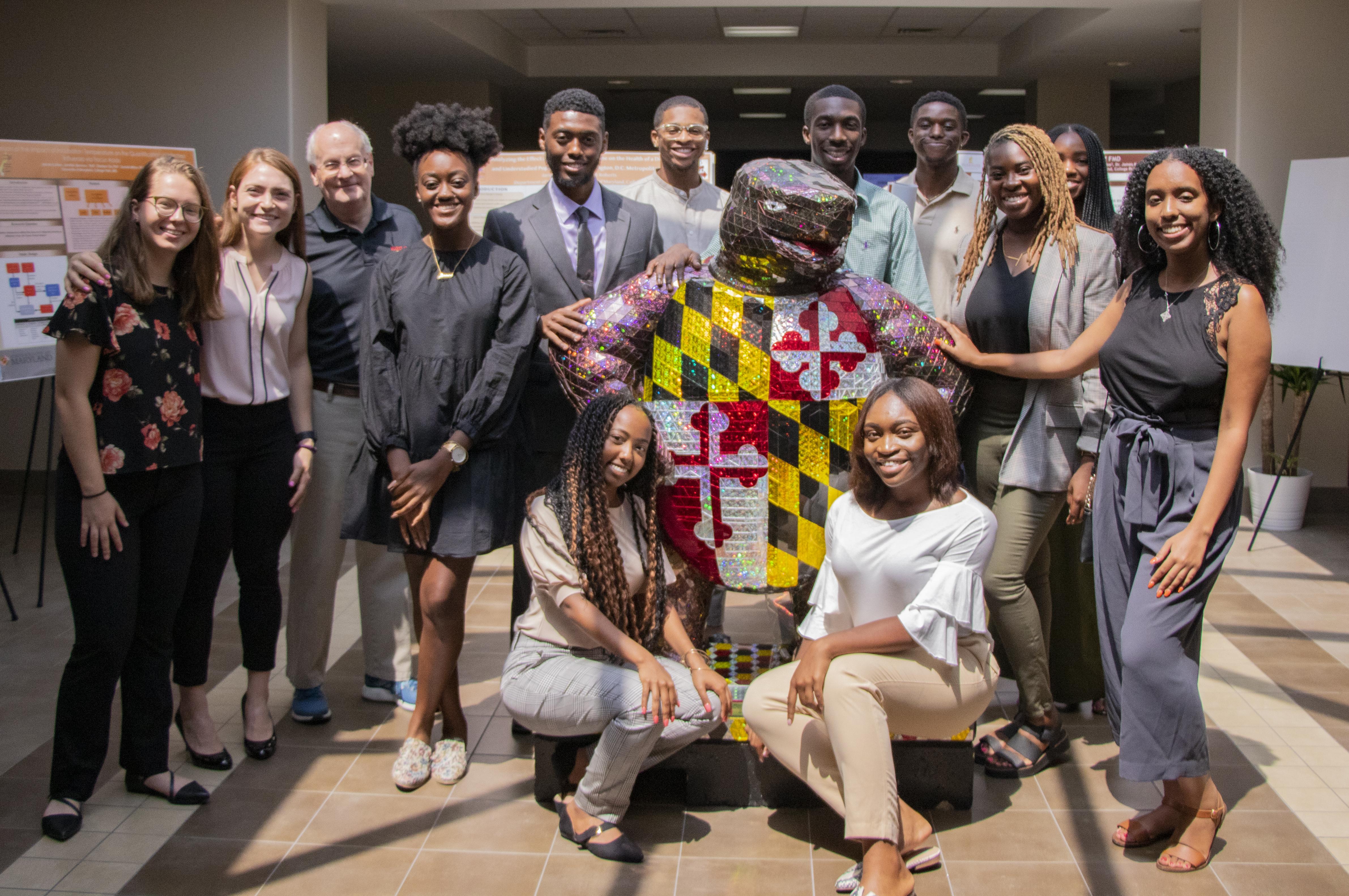
The University of Maryland School of Public Health Aging Diversity and Professional Development (UM ADAPT) program provides underrepresented or disadvantaged University of Maryland College Park undergraduates with two years of research, ethics, and career development training. To be eligible for this program, you must be an undergraduate student at the University of Maryland College Park. If you are from any other institution, you may be eligible for our otherwise very similar UM STAR Program.
The overall aim is to increase diversity in the pool of individuals who choose careers in biomedical/behavioral research related to aging. The UM ADAPT Program has been funded by the National Institute on Aging of the NIH since 2014. The Program admits 7-8 new Trainees each year. The UM ADAPT program extends over two consecutive years, including two academic years and two concentrated summer experiences, with distinct activities each year. Housing will also be provided during both summers at no cost to the students.
The Specific Aims of the UM ADAPT Program are to:
- Increase knowledge of landmark research on aging and aging-related disciplines
- Enhance research skills and experience necessary to be competitive graduate school applicants in aging-related disciplines
- Enhance awareness of the process, practice, and ethics underlying scientific research
- Prepare trainees for graduate school and a research career in aging-related disciplines
- Provide high-quality mentoring
Application Information
The goal of the UM ADAPT program is that all Trainees will be supported for two consecutive summers and two academics years in the program. We very strongly believe that 2 consecutive years in the UM ADAPT program will significantly enhance the Trainee’s experience and maximize their potential for successfully completing an advanced graduate degree in a biomedical or behavioral discipline related to aging.
- Citizen or permanent resident of the US;
- Enrolled full-time at the University of Maryland College Park;
- Currently a sophomore or junior
- Have not already completed a Bachelor’s degree;
- 3.0 or better cumulative grade point average;
- Come from an under-represented minority group, disadvantaged background, and/or have a disability
- Under-represented minority: African American or black, Hispanic/Latino, Native American or Pacific Islander
- Disadvantaged background: First-generation college student within the immediate family
- Disability: Physical or mental impairment that substantially limits one or more major life activities
- Desire to pursue a PhD in biomedical or behavioral sciences related to aging;
- Willing to commit to the program for 2 consecutive summers and academic years.
- Completed UM ADAPT Application Form
- A one-page Personal Statement that must address:
- which three ADAPT program faculty mentors they have selected and why
- their long-term career goals, especially with regard to graduate school and pursuing a PhD degree
- why they selected the UM ADAPT program
- Unofficial undergraduate transcript
- Letters of reference from three university faculty members who are familiar with the applicant with one of these letters from a faculty member who has had the applicant in a behavioral, life, or biological sciences class.
Download the UM ADAPT Application Form
Application materials should be submitted to the Program Director, James Hagberg, PhD, via email at hagberg@umd.edu
Applicants are strongly encouraged to communicate with the Program Co-Ordinator or Program Director and to submit their complete application as soon as possible as admissions are on a rolling basis and qualified applicants will be admitted until the number of available slots for the year is filled.
This year's ADAPT Program will take place from June 3rd - August 9th, 2024.
Each candidate’s application materials will be reviewed by the UM ADAPT Admissions Committee based on the following criteria:
- The candidate’s desire to pursue a PhD degree
- The candidate’s Personal Statement
- Undergraduate GPA, especially in science-based courses
- Letters of reference
- A rising sophomore or a junior
- The diversity they add to the applicant pool
- The mentors they have selected
Training Activities
Once a trainee has been accepted into the program, their mentor will make initial contact by email and/or telephone to begin to develop the research project that the trainee will complete during the summer. It is expected that this project will be somewhat finalized prior to the trainee arriving at UM for the summer program. The faculty mentors will meet with each of their trainees every Friday during the summer to assess progress over the last week, to establish research goals for the upcoming week, and to “troubleshoot” any problems that have developed. These progress reports and goals are necessary for the trainee to present and discuss at the Monday Research Updates. One prerequisite for a faculty mentor to accept a ADAPT trainee is that the faculty mentor agrees to spend the appropriate amount of time necessary to ensure a successful research experience for the ADAPT trainee.
Trainees are expected to spend as much time as possible in their Mentor's research laboratory during the academic year from September through May. Trainees are encouraged to enroll for Undergraduate Internship or Undergraduate Research credits with their Mentor for as many semesters as possible when they can commit the necessary time to their research efforts.
During the academic year, trainees are expected to attend a weekly one hour seminar. The time and day of this seminar will be established on a semester-by-semester basis based on the trainee's classroom schedules. Some of these sessions will be journal clubs, others discussions with visiting guests, and other activities to enhance the trainees' research and professional training.
All UM ADAPT trainees, the two co-directors, and at least two faculty mentors will meet informally every Monday for 1-2 hrs with lunch provided. Each trainee will present a ~5 minute summary of his/her research progress over the past week with ~5 minutes of discussion from other trainees, Co-Directors, and mentors. The goal of this interaction is to have trainees review their own progress and set goals for the upcoming week, and for other trainees and faculty involved with the program to assess their progress on a weekly basis and help them to set realistic and achievable goals for the upcoming week.
All UM ADAPT trainees and 3-4 graduate students from laboratories involved in the ADAPT program will meet informally every Wednesday for 1-2 hrs with lunch provided. The graduate students participating in these sessions will change every week and they will be selected to provide a wide range of backgrounds including ethnicity/race, gender, career goals, and laboratory background. In this session virtually any question can be raised and discussed. Issues that might be discussed would be: how did you decide on a research career, how did you select a program and a specific professor as your major advisor, what should a person look for in selecting a program or major advisor, among others.
All ADAPT trainees and the Co-Directors will attend this session, which is meant to develop the ability of ADAPT trainees to understand, critique, and present published articles related to biomedical and behavioral aspects of cardiovascular disease. Lunch will also be provided to enhance attendance by faculty and students. Two articles will be presented during each week of Journal Club. In the first week, the articles will be presented by the Co-Directors to provide the trainees with model presentations. In the subsequent four weeks, faculty and graduate students will present the articles while involving their first-year mentees in the development of the presentation. In the next four weeks, trainees will present the journal club articles with the assistance of their faculty and graduate student mentors. The papers presented will be selected from a list generated by the Co-Directors to represent classic papers in the areas related to the research of the faculty mentors (see Table below for examples).
Sample Journal Club Articles
Keys A. Coronary heart disease in seven countries. Circulation Supp. 1970; I186-I195.
Ross R, Glomset JA. The pathogenesis of atherosclerosis. N Engl J Med 1976; 295:369-377, 420-425.
Ross, R. Atherosclerosis – an inflammatory disease. N Engl J Med 1999; 340:115-126.
Sytkowski PA, Kannel WB, D’Agostino. Changes in risk factors and the decline in mortality from cardiovascular disease. The Framingham Heart Study. N Engl J Med 1990; 322:1635-1641.
The Lipid Research Clinics Coronary Primary Prevention Trial Results I. Reduction in incidence of coronary heart disease. JAMA 1984; 251:351-364.
Blair SN, Kohl HW, III, Paffenbarger RS, Jr, Clark DG, Cooper KH, Gibbons LW. Physical fitness and all-cause mortality. A prospective study of healthy men and women. JAMA 1989; 262:2395-2401.
Klein S, Burke LE, Bray GA et al. Clinical implications of obesity with specific focus on cardiovascular disease: A statement for professionals from the American Heart Association Council on Nutrition, Physical Activity, and Metabolism: endorsed by the American College of Cardiology Foundation. Circulation 2004;110:2952.
Appel LJ, Moore TJ, Obarzanek E, et al. A clinical trial of the effects of diet patterns on blood pressure: DASH Collaborative Research Group. N Engl J Med. 1997; 336: 1117–1122.
Rossouw JE, Anderson GL, Prentice RL, et al. Risks and benefits of estrogen plus progestin in healthy postmenopausal women: principal results from the Women’s Health Initiative randomized controlled trial. JAMA. 2002; 288: 321–333.
Pai JK, Pischon T, Ma J, et al. Inflammatory markers and the risk of coronary heart disease in men and women. New Engl J Med 2004; 351:2599-2610.
Research-Related Training for first-year trainees is designed to enhance their knowledge of the process, practice, and ethics of biomedical and behavioral research. It will introduce the trainees to a range of critical issues related to research including ethics, human research, animal research, scientific misconduct, and appropriate scientific practices. Trainees will complete the on-line Human Participant Protection Education for Research Teams course during the program.
Introduction to Research: This session is designed to inform the trainees about the different definitions and forms of research, especially as they have evolved over time. The goal is for the trainees to understand that the term “research” is not static and that it varies over time and disciplines.
Introduction to Human Research and IRBs: This session will address the evolution and current status of human subjects research protection and will address such issues as the Tuskegee study, the Belmont Report, the Office of Human Research Protections, and the recent Kennedy-Krieger case in Maryland.
Introduction to Animal Research and IACUC: This session will address the principles and legislation that regulate the humane use of animals in research laboratories. Trainees will also become familiar with the American Association for Laboratory Animal Science (AALAS) web site and will complete one of the on-line AALAS training programs.
Scientific Record Keeping and Data Management: Trainees will learn about expectations for record-keeping, its purposes, how to ensure participant confidentiality, different types of record keeping, and how data management systems work, among other topics. Students will be shown examples of study protocols and manuals of procedures.
Scientific Misconduct and the Office of Research Integrity: A case study will be used to highlight important issues surrounding scientific misconduct. This session will cover the Eric Poehlmann case from the beginning to the end to alert the trainees to the overriding issues that may result in scientific misconduct.
Authorship: Trainees will be instructed as to the requirements for inclusion as an author on a published scientific paper. Readings for this session will include the general guidelines used by a number of scientific journals relative to authorship and a number of articles that directly address and discuss the issue of authorship.
Conflict of Interest: Prior to this session, trainees will conduct a web-based search to identify the different types of conflicts of interests, find examples of conflict of interest policies (NIH and others), how real or perceived conflicts may jeopardize objectivity, and what types of conflicts are disclosed for different scientific-related activities. A recent review article suggesting that funding source can influence study outcomes will be a reading assignment (Lesser LI, Ebbeling CB, Goozner M, Wypij D, Ludwig DS. Relationship between funding source and conclusion among nutrition-related scientific articles. PLoS Med. 2007 Jan 9;4(1):e5 [Epub ahead of print]).
Open Discussion/Topics of Interest: During the first 9 weeks of this program the trainees will be constantly reminded and questioned about any additional research-related training topics that they would be especially interested in discussing in the last week. Given their stated interests and career goals, we fully expect that it will not be difficult to generate one or two additional Research-Related Training topics. The Co-Directors, with the assistance of second-year trainees, will develop and present this session with appropriate readings being available prior to the session.
This component is designed for second-year trainees to significantly advance their career development and to prepare them for the next steps in their careers. As such, this component primarily focuses on issues related to graduate school, such as mentoring, development of a Curriculum Vita, preparing for graduate school, GRE preparation, graduate school admission process, selecting a graduate school and advisor, and research and academic careers. One session will also be dedicated to Mock Graduate School Interviews.
At the end of the summer UM ADAPT program, each trainee will make a 10-minute oral PowerPoint presentation similar to what would take place at a national scientific meeting summarizing their summer research project. In addition, there will also be a UM ADAPT Poster Session, where each trainee will prepare and present a poster summarizing their summer’s work, results, and conclusions. The Dean of the School of Public Health, all Department Chairs, and UM ADAPT faculty mentors will attend this session; other faculty members and graduate students in the School of Public Health will be encouraged to also attend.
Given the large number of scientific and cultural resources in the immediate area of UM, each summer the Trainees, the Co-Directors, and Mentors will visit additional sites to enhance the Trainees’ scientific and cultural development. These visits could include: NIH, USDA, and Smithsonian scientific laboratories, a behind-the-scenes tour of the National Zoo, Annapolis and the US Naval Academy, the White House, Senate, House of Representatives, or the Chesapeake Bay Foundation. We have personal contacts at the NIH, USDA, Smithsonian, Chesapeake Bay Foundation, and National Zoo. One summer the UM STAR faculty and Trainees visited the National Library of Congress, the National Library of Medicine at NIH, and a trip to the Baltimore Aquarium and Baltimore Orioles game.
Funds are available from the UM ADAPT Program for Trainees to attend a national scientific meeting to present their research in the second year of their program. Potential meetings available for Trainees to attend are Annual Biomedical Research Conference for Minority Students (ABRCMS), Society for Advancement of Chicanos and Native Americans in Science (SACNAS), Gerontology Society of America (GSA), Ameerican College of Sports Medicine (ACSM), and American Heart Association (AHA).
Program Staff and Mentors
Faculty mentors are all from the University of Maryland School of Public Health and all have current and pending extramural funding in content areas that are highly relevant to cardiovascular disease and aging health. Because of the School of Public Health’s emphasis on biomedical and behavioral factors surrounding important public health issues relevant to residents of Maryland and surrounding communities, the nation, and beyond, much of the faculty’s research programs are in these areas. In particular, substantial research is on behavior, specifically physical activity/exercise training, as an exposure to affect outcomes relevant to aging health. The faculty offers a mix of expertise that ranges from laboratory-based bench research to applied community-based research.
Program Director
James Hagberg, PhD
Professor, Department of Kinesiology, University of Maryland School of Public Health
Professor of Medicine, Epidemiology and Public Health, University of Maryland School of Medicine
Email: hagberg@umd.edu
James Hagberg, PhD
Professor – Departments of Kinesiology, Medicine, Public Health and Epidemiology
Dr. James Hagberg's previous research assessed the genetics of CVD risk factor responses to exercise training in sedentary older men and women. He maintains a database of CV fitness, plasma lipoprotein lipids, body composition, bone density, glucose tolerance, insulin sensitivity, and inflammatory, coagulation, and fibrinolysis measures from before and after a standardized six-month exercise intervention in ~200 older men and women from this study. This database contains ~40 genotypes, numerous phenotypes, and banked plasma and DNA samples for these individuals. Trainees could analyze new relationships among the genotype and phenotype data, or they could measure new phenotypes in the plasma samples or genotype new polymorphisms in the DNA samples. More recently, Dr. Hagberg has studied the effects of exercise and lack of exercise on circulating angiogenic cells, adult stem cells that have regenerative capacities within the CV system, in middle- to older-aged healthy individuals and clinical populations. Dr. Hagberg has a long history of mentoring as the major advisor for 16 PhD and 20 masters students. He and his lab mentored numerous trainees in the first ten years of the UM STAR program and the first five years of the UM ADAPT Program.
Sarah Glancy, PhD
Assistant Professor – Department of Kinesiology
Dr. Sarah Glancy earned her PhD from Arizona State University in 2012 in Exercise Biochemistry and joined the faculty of the University of Maryland Department of Kinesiology in 2017. She studies cardiac mitochondrial energy production matching to energy demand. i.e. how cardiac muscle cells increase ATP production at the onset of exercise. She is funded by the American Heart Association to investigate how the cellular milieu affects energy production in cardiac mitochondria in an animal model of heart failure with preserved left ventricular ejection fraction. Trainees could participate in bench research, performing experiments measuring calcium uptake in heart mitochondria. Dr. Glancy is currently funded via an American Heart Association Career Development Award titled" Matching Myocardial Energy Supply to Increases in Demand: Altered Calcium Action in Heart Failure. "Dr. Glancy has mentored a number of undergraduate and graduate students during her graduate school and postdoctoral training.
Steven Jay, PhD
Assistant Professor – Department of Bioengineering
Dr. Steven Jay earned his biomedical engineering PhD from Yale University in 2009 and then completed postdoctoral training at Harvard/MIT. His laboratory develops rationally-designed therapeutic biotechnologies involving exosomes, other extracellular vesicles and engineered proteins. A driving force behind his work is to translate discoveries and innovations into clinical therapies. He currently collaborates with Dr. Hagberg to examine the effects of exercise on endothelial function to enhance therapeutic vascularization. Dr. Jay's research is currently funded by an NIH/NHLBI RO1 titled "Controlling Exosome Noncoding RNA Cargo for Enhanced Wound Healing." Dr. Jay also directs an honors undergraduate student team that is investigating similar mechanisms to potentially treat osteoarthritis and has mentored a number of masters and PhD students.
Alisa Morss Clyne, PhD
Associate Professor – Department of Bioengineering
Dr. Alisa Morss Clyne completed her PhD at MIT, was then on the faculty at Drexel University, and joined the University of Maryland faculty in 2019. She seeks to understand how integrated biochemical and biomechanical factors contribute to CV disease. Specifically, she alters the biochemical environment (by changing glucose levels or extracellular matrix proteins) and assesses how endothelial cells respond to mechanics (e.g., shear stress, cyclic strain, substrate stiffness). She also perturbs the mechanical environment and measures how endothelial cells respond to biochemical signals, such as angiogenic growth factors. Her lab is very interested in endothelial metabolism, which has recently emerged as a therapeutic option to reduce microvascular angiogenesis in cancer. However, little is known about how endothelial metabolism impacts macrovascular diseases such as atherosclerosis. Her current research, titled "The Effect of Laminar and Disturbed Flow on Endothelial Glucose Metabolism," is funded by an NHLBI RO1 grant. She has been a PI on an NSF REU, NSF education grant, and a Department of Education Graduate Assistance in Areas of National Need (GAANN) program. Thus she has substantial experience mentoring undergraduate students. In addition, she has six undergraduates working in her lab at present, plus two high school students. She has also mentored several under-represented minority doctoral students in a Bridge to the Doctorate program, one of whom is in her lab currently. She also directs a summer bridge program for incoming Drexel University under-represented minority women freshmen.
Steven Prior, PhD
Assistant Professor – Department of Kinesiology
Dr. Steven Prior earned his PhD in kinesiology from the University of Maryland and then rejoined the UM faculty in 2017. He has published 30 scientific papers. Dr. Prior studies the mechanisms by which the risk for age-associated cardiometabolic diseases, functional deficits and associated vascular impairments are improved in older adults with exercise training. These studies include cardiometabolic and functional phenotyping, as well as skeletal muscle and plasma samples in ~70 older adults. Trainees could analyze relationships among novel disease predictors and cardiometabolic phenotypes or assay samples for novel targets. Dr. Prior's research is currently funded by an NIH/NIA R21 grant titled "Neuromuscular Rehabilitation to Improve Function in Older Adults with PAD," which though funded through NIA clearly is primarily focused on the CV system, angiogenesis and CV disease risk factors. He has mentored a number of graduate students, as well as six postdoctoral fellows and junior faculty members.
Sushant Ranadive, PhD
Assistant Professor – Department of Kinesiology
Dr. Sushant Ranadive earned his PhD in exercise physiology from the University of Illinois and completed postdoctoral training at the Mayo Clinic. He joined the University of Maryland faculty in 2017. He has 41 publications on vascular function and exercise training in postmenopausal women and sex differences in vascular function, inflammation and oxidative stress. Trainees can participate in data collection and analyses for these projects. Dr. Ranadive's research is currently funded by a UM internal grant to assess "Racial Differences in Vascular Function Following Induced Acute Inflammation." Dr. Ranadive has mentored a high school student, three undergraduate students, one medical student and one MD-PhD student previously at the Mayo Clinic.
Kellee White, PhD
Associate Professor – Department of Health Policy and Management
Dr. Kellee White received her PhD in epidemiology in 2008 from Columbia University and then completed social epidemiology postdoctoral training at Harvard. She was on the faculty at the University of South Carolina for 8 yrs before joining the University of Maryland faculty in 2018. Her specific training and expertise in social and CV epidemiology has allowed her to develop a research agenda related to the social determinants of cardiometabolic risk factor control and management, with an emphasis on healthy aging among middle-aged and older adults. To achieve this, she has completed several epidemiological studies using the Health and Retirement Study (HRS), a multi-ethnic nationally representative sample of middle-aged and older adults. She is currently PI of two studies involving HRS data, one of which examines the contribution of multimorbidity typologies to racial disparities in Alzheimer’s Disease. In addition, Dr. White has mentored over 75 undergraduates, master’s, doctoral students, and junior faculty members to this point in her career.
Samira Anderson, PhD, AudD
Associate Professor – Department of Hearing and Speech Sciences
Dr. Samira Anderson received her AudD in 2000 from the University of Florida and then completed a PhD in Auditory Neuroscience at Northwestern University in 2012. She joined the University of Maryland faculty in 2013. Her research investigates the neural mechanisms contributing to the hearing difficulties evident in older adults. The results of these studies are then used to inform treatment approaches to age-related hearing loss through the optimization of hearing aid and cochlear implant fitting strategies and through innovative approaches to enhance auditory neuroplasticity. Her approach combines electrophysiology, magnetoencephalography, and behavioral assessments in humans. Her work is currently supported by the NIA and NIDCD and is part of Dr. Gordon-Salant’s NIA-funded Program Project on hearing. Dr. Anderson is dedicated to mentoring students of diverse backgrounds, and in particular, to teach them translational approaches to improving the quality of life in older adults. To this point in her career, she has mentored 4 under-represented minority high school students, and 24 undergraduate and 13 graduate students.
Sandra Gordon-Salant, PhD
Professor – Department of Hearing and Speech Sciences
Dr. Sandra Gordon-Salant received her PhD in 1981 in audiology from Northwestern University. She has been on the University of Maryland faculty since then and from 1987 to 2000 she was a Guest Scientific Investigator at the NIA extramural laboratories in Baltimore. Her career has been devoted to studying age-related hearing loss, with a focus on factors contributing to speech understanding difficulties in degraded listening situations in older individuals. She has published numerous investigations of speech perception and psychoacoustic abilities among younger and older listeners, designed prospective investigations of longitudinal changes in hearing, and studied the benefits of auditory training for older hearing-impaired individuals. Her research has culminated in 80+ publications including “The Aging Auditory System” published in 2010 for which she served as the senior editor. She has had NIA funding since 1989 for “Auditory temporal processes, speech perception, and aging.” Dr. Gordon-Salant also is the PI of an NIA Project Grant titled, “Neuroplasticity in Auditory Aging” and is also Co-Director of the NIH-funded T32 Training Program on Comparative and Evolutionary Biology of Hearing at UM. Her mentorship experience as co-director of the T32 training grant and as a research advisor to numerous undergraduate and graduate students, amply demonstrates that she has the requisite qualifications to serve as a Mentor in UM ADAPT for under-represented minority students.
Matt Goupell, PhD
Associate Professor – Department of Hearing and Speech Sciences
Dr. Matt Goupell earned his PhD in physics and psychological acoustics in 2005 from Michigan State University and then completed postdoctoral training at the Austrian Academy of Science and the University of Wisconsin. He joined the University of Maryland faculty in 2011. His research investigates hearing abilities in typically hearing individuals as well as those who have gone deaf and received a cochlear implant. Testing involves behavioral sensory, cognitive, and electrophysiological measures. Because many cochlear implant users are older, investigating the effects of aging is critical in comparing typically hearing and cochlear implant listeners. Trainees could test younger and older participants, do hearing evaluations, perform cognitive assessments, and develop programming/analysis/numerical modeling skills. Dr. Goupell has a long history of mentoring as the major advisor for 5 PhD, 15 Doctor of Audiology students, and 5 undergraduate honors students. He has involved 40 undergraduates in his research over the last 7 years.
Jonathon Simon, PhD
Professor – Department of Electrical and Computer Engineering
Dr. Jonathon Simon earned his PhD in physics from the University of California-Santa Barbara in 1990. He then completed 3 postdoctoral fellowships with the final one in auditory neurosciences at the University of Maryland where he then joined the faculty in 2000. He has expertise in a broad range of auditory neuroscience, with emphasis on the neural foundations of speech processing and perception, especially in the case of degraded or masked speech. His main approach is to use magnetoencephalography as a neurophysiological tool in human subjects. Furthermore, aging and its profound effects on speech processing by the brain have recently become a major focus of his research. As PI of an NIA P01 project and core (P01 “Neuroplasticity in Auditory Aging”, PI Sandra Gordon-Salant), every member of his lab’s research touches on some on the aspect of auditory aging. Dr. Simon also has a strong record of undergraduate mentoring, having been a research advisor for 32 undergraduates, of which 15 were members of summer research programs (e.g., NSF REU). Two of these students later returned to his lab as graduate trainees. Six of his trainees have been underrepresented minorities. Dr. Simon very much looks forward to extending his mentoring expertise to the excellent under-represented minority and disadvantaged undergraduates in UM ADAPT.
Cher Dallal, PhD
Associate Professor – Epidemiology and Biostatistics
Dr. Cher Dallal her PhD in Epidemiology in 2009 from the University of Pittsburgh Graduate School of Public Health, completed postdoctoral training in the NCI/NIH Cancer Prevention Fellowship Program and joined the University of Maryland faculty in 2013. Her research assesses lifestyle and hormonal factors related to breast, endometrial and ovarian carcinogenesis and she has published >20 papers in this area. She also has examined factors related to cancer risk and survivorship in older adults. The larger context for her research is in cancer control and prevention that integrates health disparities research, behavioral factors, biological profiles, and cancer epidemiology, issues which are all critically important for our aging US demographics. She mentors both undergraduate and graduate students and to this point has mentored one UM ADAPT Trainee.
Cheryl Holt, PhD
Professor – Department of Behavioral and Community Health
Dr. Cheryl Holt earned her PhD in 2001 at St. Louis University in applied/experimental psychology. She was on the faculty there and at the University of Alabama before joining the University of Maryland faculty in 2008. Her research involves community-based health communication studies and the role of culture in health cognitions and behaviors. She has directed 7 randomized trials examining cancer communication interventions for older African Americans. All of this research is focused on racial disparities in terms of populations undergoing recommended preventive screening for various cancers, an issue that is clearly critical to optimize the health and longevity of older Americans. Dr. Holt has a long mentoring history at the undergraduate, graduate, and post-graduate levels. She has ~100 publications, most including student co-authors. Dr. Holt has worked with UM STAR and ADAPT trainees for 6 yrs and is also a mentor in the Kellogg Foundation/American Academy of Health Behavior program in community-based participatory research.
Ricardo Araneda, PhD
Associate Professor – Department of Biology
Dr. Ricardo Araneda received his PhD in neuroscience from Albert Einstein University in 1997 and then completed postdoctoral training at Columbia University. He has been on the University of Maryland faculty since 2006. The focus of his research is on understanding how neuromodulatory transmitters regulate neuronal activity in the brain, using the olfactory system as a model. In humans, olfactory dysfunction is an early symptom in aging and in several neurodegenerative disorders, including Alzheimer’s Disease. Therefore, his studies in olfaction that are funded by an NIA RO1 provide important information on fundamental principles that govern sensory processing under physiological conditions in the aging brain and that could lead to an early biomarker to assess the onset of Alzheimer’s Disease. In addition, Dr. Araneda has a strong commitment to excellence in the teaching, mentoring and training of younger scientists, in particular, under-represented groups in science fields. Over 10 graduate students and 50 undergraduate students have received or are currently receiving training in his lab.
J. Carson Smith, PhD
Associate Professor – Department of Kinesiology
Dr. J. Carson Smith earned his PhD in 2000 in exercise science from the University of Georgia and completed postdoctoral training at the University of Florida in psychophysiology/affective neuroscience. He joined the UM faculty in 2011 and has >40 publications. His lab studies the efficacy of physical activity in improving metabolic health and brain function and structure, as measured by MRI, in older adults at increased risk for Alzheimer's Disease. He has studied the effects of exercise on cerebral blood flow using arterial spin labeling and brain activation using functional MRI. Recently Dr. Smith had an RO1 funded by NIA to assess the impact of exercise training on cerebral blood flow, MRI biomarkers, and episodic memory performance in older cognitively intact APOE-4 allele carriers. Dr. Smith has mentored a number of graduate and undergraduate students, among them, five UM STAR and 2 UM ADAPT trainees. Dr. Smith was also previously the Director of the Kinesiology Undergraduate Honors Program for the last 5 yearsrs providing further evidence of his dedication to mentoring undergraduate students.
Eva DuGoff, PhD
Assistant Professor – Department of Health Policy and Management
Dr. Eva DuGoff earned her health services research PhD at the Johns Hopkins University School of Public Health. She was on the faculty at the University of Wisconsin before joining the University of Maryland faculty in 2017. She has 20 manuscripts focusing on quality of care and health care delivery in older adults living with multimorbidities. Her research assesses the quality of care delivered to high-needs older adults in the Medicare Advantage program, and how to improve health outcomes among older adults with multiple morbidities. She has mentored a number of undergraduate and graduate students, and co-authored publications with graduate students.
Luisa Franzini, PhD
Professor – Chair, Department of Health Policy and Management – Director, Center on Aging
Dr. Luisa Franzini received her PhD in Econometrics from the London School of Economics and joined the University of Maryland faculty in 2014. She has >100 publications and has been funded by NIH and HRSA. She is funded to develop a model for health care delivery for the elderly in rural Maryland. She focuses on medical spending variations in the commercial sector, Medicare, and Medicaid; innovation in financial incentives in health care; and social determinants of health disparities. Virtually all of her research over the entire course of her career has directly addressed aging or aging-related health issues. Trainees could participate in data analyses of claims and other health care data. She has mentored >35 doctoral and masters students with many being under-represented minorities.
Lori Simon-Rusinowitz, PhD
Associate Professor – Health Policy and Management
Dr. Lori Simon-Rusinowitz earned her PhD in Health Policy at the University of Illinois Chicago and an MPH from the University of Michigan. She was previously at the George Washington University National Health Policy Forum and The Gerontological Society of America. She studies aging and disability policy issues. She has led numerous policy implementation studies on topics such as a policy option to hire family caregivers, consumer-directed services for older consumers and caregivers, and training representatives for consumers with dementia. She has mentored 4 PhD and ~12 MPH, students.
Cynthia Baur, PhD
Professor, Director, Maryland Center for Health Literacy
Dr. Cynthia Baur completed her Communication PhD at the University of California, San Diego. She joined the University of Maryland faculty in 2017 as the Endowed Chair and Director of the Horowitz Center for Health Literacy. She previously spent 17+ yrs in senior US Department of Health and Human Services and the Centers for Disease Control and Prevention positions. She led the National Action Plan to Improve Health Literacy and Healthy People health communication objectives. Dr. Baur's research is funded by an NLM RO1 titled "HealthyMe/MiSalud Smartphone Application: Identifying Mechanisms to Engage African Americans and Hispanics in Personal Health Libraries "which will address the barriers in these populations that limit their use of smartphone apps to optimize their health, especially in terms of CV disease and diabetes. Her research focuses on how people find, understand, and use health information. She has mentored junior staff at DHHS and CDC and undergraduate and graduate students since arriving at the University of Maryland.
James Butler III, DrPH
Associate Professor – Department of Behavioral and Community Health
Dr. James Butler earned his DrPH in health services administration in 1999 at the University of Pittsburgh Graduate School of Public Health. He completed postdoctoral training at the University of Kansas School of Medicine in cancer prevention and tobacco control. He was at the University of Pittsburgh School of Public Health faculty before joining the University of Maryland faculty in 2010. He has published >25 manuscripts. His research uses an ecological framework that incorporates individual, social structure, and environmental influences to understand and eliminate tobacco-related health disparities across a spectrum of mostly preventable conditions and diseases, especially in older African Americans. As an African American, he is dedicated to building strong relationships with communities to design and conduct interventions. He has mentored 20 undergraduate and graduate students in health disparities to this point in his career.
Kan Cao, PhD
Associate Professor – Department of Cell and Molecular Biology
Dr. Kan Cao received her PhD in Biology from Johns Hopkins University in 2005 and then completed postdoctoral training in genomics at NIH with Francis Collins. Dr. Cao was named a New Scholar in Aging by the Ellison Medical Foundation in 2011. She studies molecular and cellular mechanisms underlying Hutchinson Gilford progeria syndrome (HGPS), a rare premature aging disease. Roughly 90 percent of HGPS cases are caused by a de novo mutation in the lamin A gene which causes life-threatening CVD in HGPS patients. Previous research has shown a profound and massive loss of smooth muscle cells in large arteries in both human patients and HGPS mouse models, strongly suggesting a connection of this phenotype with the CV malfunction and death associated with HGPS. The primary goal of her laboratory is to elucidate the molecular pathway behind this phenotype. To investigate this question, her laboratory applies a suite of techniques from cell biology, stem cell biology, to genomics. Her current collaborators include Drs. Francis Collins (NIH/NHGRI) and Richard Hodes (NIH/NIA). Her research is funded by two NIH/NHLBI RO1 awards. Dr. Cao has a long history of mentoring, serving as an advisor for eight PhD students, five postdoctoral fellows, and ten undergraduate students.
Sandra Crouse Quinn, PhD
Professor, Chair – Department of Family Sciences, Associate Director, Center for Health Equity
Dr. Sandra Crouse Quinn completed her health education PhD at the University of Maryland and was then on the faculty at the University of North Carolina and the University of Pittsburgh Graduate School of Public Health until she joined the University of Maryland faculty in 2010. She has >70 publications. She was PI for the UM Center of Excellence in Race, Ethnicity and Health Disparities Research, a 5-year study addressing cultural beliefs behind vaccine racial disparities, and a prestigious Grand Opportunity grant from the NIH Office of the Director titled “Bioethics Research Infrastructure Initiative: Building Trust between Minorities and Researchers”. Both of these issues are critical to our understanding of the health disparities associated with aging in the US. She is a co-investigator on the National Research Mentoring Network and has mentored junior faculty, post-doctoral fellows, and undergraduate, masters, and doctoral students, including numerous under-represented minorities.
Typhanye Dyer, PhD
Assistant Professor – Department of Epidemiology and Biostatistics
Typhanye Dyer earned her PhD in Public Health from the UCLA School of Public Health and completed postdoctoral training at Johns Hopkins University. Her work focuses on syndemics and risk for HIV and STI among sexual minority men. Her most recent grant explores the stigma and engagement in medical care for older black women living with HIV. As people are aging with HIV, this study will also examine care for aging-related comorbid conditions. Dr. Dyer has mentored several masters students, has mentored and published with several doctoral students, and has mentored several McNair Scholars at the University of Maryland.
Craig Fryer, DrPH
Associate Professor – Department of Behavioral and Community Health, Associate Director - Center for Health Equity
Dr. Craig Fryer earned his DrPH in 2006 in sociomedical sciences from Columbia University School of Public Health. He was on the University of Pittsburgh faculty before joining the University of Maryland faculty in 2010. He has 30 publications and uses mixed methods designs to examine the sociocultural context of health and health disparities, with expertise in racial/ethnic minority populations. His two main research interests of tobacco cessation programs and the recruitment of minority individuals to research trials directly focus on aging and older populations, thus providing an excellent platform for mentoring ADAPT trainees. He has mentored post-doctoral fellows, served on numerous dissertation committees, chaired graduate student theses, and has mentored both undergraduate and graduate students.
Kerry Green, PhD
Associate Professor – Department of Behavioral and Community
Health
Dr. Kerry Green is funded by NIDA, NIA, and NIAAA to study risk factors over the life course, especially in older urban African Americans, as well as the interrelationship of substance use and mental health. She was recently funded by an NIH/NIA R01 to assess the long-term health consequences, including CV mortality and morbidity, of early life experiences in a 45 yr longitudinal follow-up cohort now that they are turning 60 with a goal to better understand pathways to successful aging, including a range of CV outcomes. She has published 60 peer-reviewed articles, is dedicated to reducing health disparities among underrepresented minorities and has mentored numerous students from under-represented minority groups.
William Jeffery, PhD
Professor – Department of Biology
William Jeffery received his zoology PhD in 1971 from the University of Iowa and then completed postdoctoral training at Tufts University and the University of Wisconsin. He was on the faculties at Houston, Texas, California-Davis, and Penn State before joining the University of Maryland faculty in 1999. Dr. Jeffery was trained in molecular developmental biology and genetics and has continued research on this and related topics throughout his career. He has had continuous research funding from NIH and/or NSF throughout his career and has published 230 articles. He began work on tunicates in the 1970s and since then has used them as model organisms to study various developmental issues. However, based on NIA RO1 funding he recently opened a new line of research relative to the adults of this species, which have amazing regenerative abilities, as a model for studying the loss of regenerative capacity during aging. Dr. Jeffery is also affiliated with the Marine Biological Laboratory, Woods Hole, which furthers his research on aging in marine animals. He has supervised ~60 undergraduates, 14 graduate students, and ~30 post-doctoral scientists over the course of his career.
Ross Miller, PhD
Associate Professor – Department of Kinesiology
Dr. Ross Miller received his PhD in kinesiology from the University of Massachusetts and joined the University of Maryland faculty in 2012. He has 36 publications and is funded by the Department of Defense. His research addresses the effects of musculoskeletal loading during exercise and activities of daily living on health and chronic diseases such as osteoarthritis. In addition to osteoarthritis, a disease highly prevalent in older populations, he also studies the role of mechanical loading from exercise in maintaining mobility in older adults. For example, he is determining if the characteristic mechanics of “older adult” gait are an inevitable consequence of healthy aging, or if they are due to a decline in physical activity with aging. Trainees can assist with biomechanics data collection and data processing, depending on their background and technical skills. He has already mentored a number of undergraduate and graduate students in his lab, including 5 UM ADAPT and STAR Trainees in the last 4 years.
Robin Puett, PhD
Associate Professor - Maryland Institute for Applied Environmental Health
Dr. Robin Puett received her PhD in epidemiology/environmental health science from the University of South Carolina in 2004. She was on the faculty there before joining the University of Maryland faculty in 2011. She has 45 publications on spatial epidemiology, statistics, environmental epidemiology, and exposure assessment in environmental health. She has several publications on the Nurse's Health Study and the Health Professionals Follow-up Study cohorts. Her current two lines of research are: "Air Pollution, Subclinical CVD and Inflammatory Markers in the SEARCH Cohort "funded by an NIEHS RO1 award and "Relationship of Ambient Air Pollution Exposures with Vaso-Occlusive Pain Crises in Sickle Cell Disease" funded by an NIH/NHLBI R21 grant. She has supervised numerous Masters and PhD students and has mentored junior faculty on diversity supplements and NIH K submissions, with many being under-represented minorities.
Stephen Thomas, PhD
Professor – Department of Health Policy and Management, Director - Center for Health Equity
Dr. Stephen Thomas earned his PhD in health education from Southern Illinois University in 1985. He joined the University of Maryland faculty in 2010, has published 60 articles, directs the NIMHD-sponsored Research Center of Excellence on Minority Health Disparities and is PI with Dr. Quinn on the National Bioethics Research Infrastructure Initiative, Building Trust Between Minorities and Researchers. His research translates clinical trials into community-based interventions for minority populations, investigates psychosocial factors associated with racial differences in willingness to participate in research, and designs culturally-tailored disease prevention outreach strategies to engage minority populations in community settings. Virtually all of the medical outcomes he has studied have critical relevance to aging. He has mentored ~20 graduate students, postdoctoral fellows, and junior faculty in his career.
